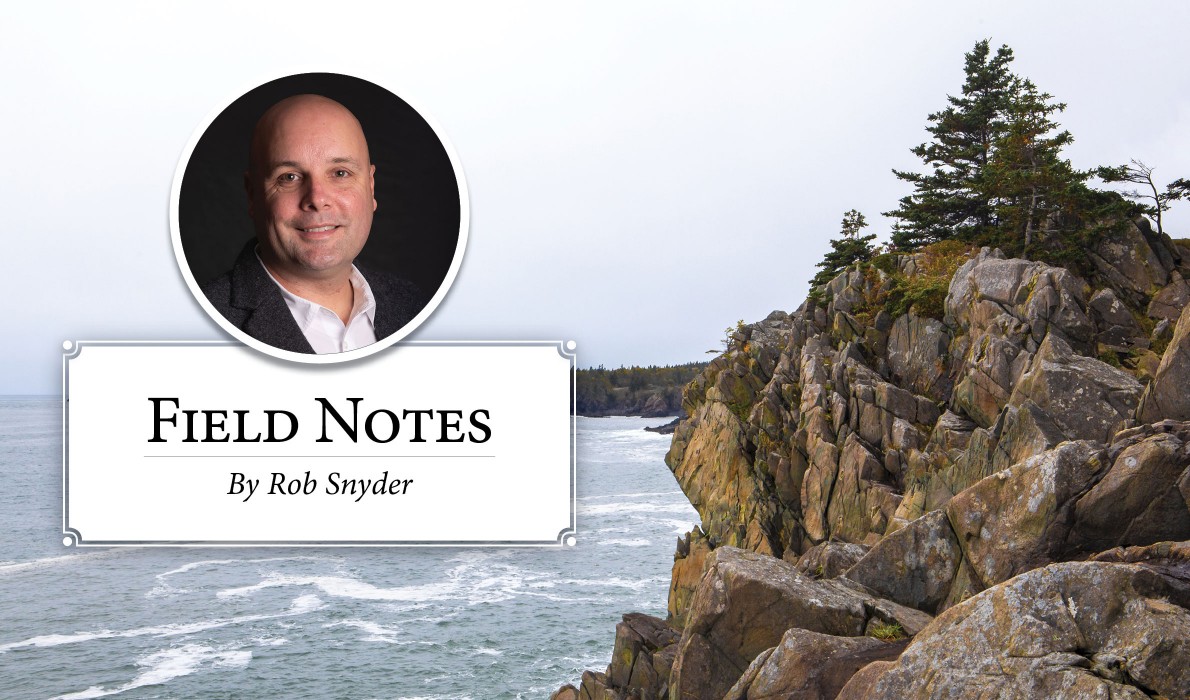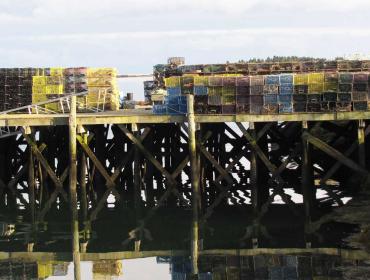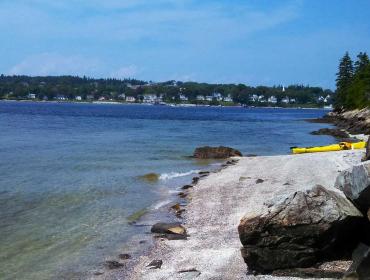Posted April 8, 2020
Last modified April 8, 2020
By Rob Snyder
Along the coast, March madness is a state of mind linked to living off diminishing savings from last summer, the uncertainty of livelihoods linked to the next tourism and lobstering seasons, isolation, and bracing for a few final snowstorms. Most years, this lasts through April.
During an average spring, I am concerned about the social fabric of the coast as stresses increase on community, economy, and home life. I worry about the impacts that this time of year can have on people who struggle with mental illness and addiction.
Now add the pandemic. I can’t think of a worse-case scenario for communities that are already experiencing their most difficult time of year.
Our communities are not idyllic. Our communities are imperfect, challenging, and beautiful places. Above all, they are communities. Fortunately, they are resilient communities built on helping each other, even when folks don’t like each other much.
March wasn’t only maddening, it was a month filled with grieving, as we paused the lives we were leading and moved to a new and unknown way of life. This new life would be defined by integrating teaching, daycare, supporting loved ones (at a distance), home offices, isolation, and sometimes all of this at once. At the same time, even those who thought they had steady jobs are now concerned about income and healthcare.
For weeks, we would plan for the next two weeks. As a friend of mine reflected, “I kept sprinting to the end of the week—toward what I thought it would take to get to a new normal, and once I made it to the end of the week, everything changed again. After a few weeks of this, I was exhausted.”
I was living and seeing this exhaustion everywhere. And I concluded that sprinting is the wrong approach when you are running a marathon.
An important shift in mindset started to emerge, driven by data showing that the pandemic would not end soon and reinforced by leadership that couldn’t clearly see an end in sight. Collectively, we began shifting to a marathon runner’s mindset, albeit one with no map and not knowing when the next aid station would appear.
What does it take to successfully integrate all aspects of our lives with this longer term, uncertain future in mind, when so many different aspects of life require navigating all at once?
The good news: I see people being vulnerable and relying on others out of necessity. When you are faced with a complex problem or a series of related problems, it requires thinking from across many domains of expertise. Within days of acknowledging the local impacts of the pandemic, towns began meeting in new ways that cut across all services. School leaders, healthcare officials, town managers, and transportation providers are meeting weekly to trouble shoot new challenges.
What should ease the burden a bit is that it's not just one person’s job to solve all the problems of the week. These problems are shared across the group, increasing the creativity and resources brought to bear. By sharing the burden, leaders are less likely to burn out.
What can each of us offer to one another during the pandemic? What is happening in your neighborhood or community that can help each of us imagine what might be needed in the short term—the next few weeks—or the longer term—the next three months?
What are you witnessing that you hope never ends? What acts of kindness, generosity, sharing of work, and changes in attitude are evident right now?
How can we become a connected set of people who could quickly assemble and help if extra hands are needed for any number of reasons?
What will we put down and leave behind?
In a recent article in the Financial Times, Arundhati Roy, author of God of Small Things, posed a way of seeing through the pandemic to other possible worlds:
“Historically, pandemics have forced humans to break with the past and imagine their world anew. This one is no different. It is a portal, a gateway between one world and the next.
“We can choose to walk through it, dragging the carcasses of our prejudice and hatred, our avarice, our data banks and dead ideas, our dead rivers and smoky skies behind us. Or we can walk through lightly, with little luggage, ready to imagine another world. And ready to fight for it.”
I love the vividness of Roy’s challenge. How can we, in the midst of the pandemic, notice and appreciate the best of who we can be, and how we can show up in our communities and bring this forward to a post-pandemic world?
This, to me, is the hope we can find as we navigate the disruptive times ahead. The new world we will inhabit is filled with possibility.
Rob Snyder is president of the Island Institute.

Contributed by



